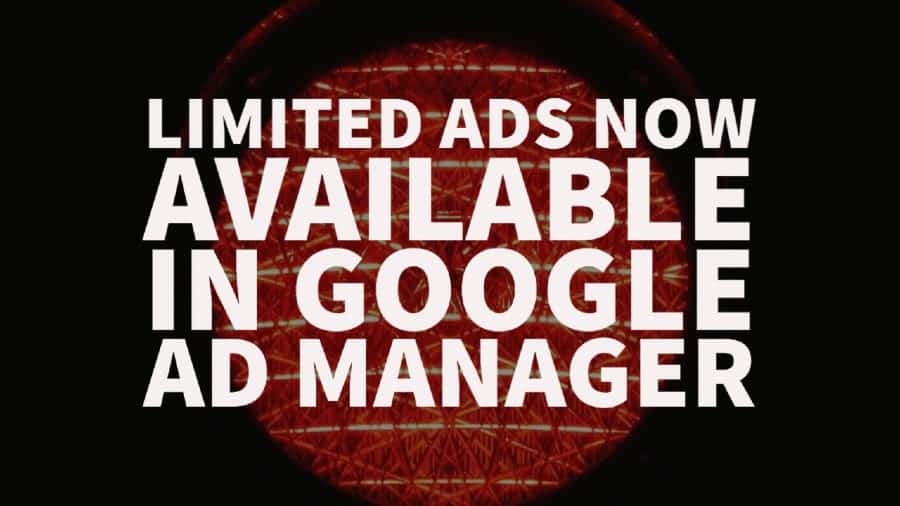
Recently Google announced that Limited ads will now be available in Google Ad Manager to all publishers. In this article, we’ll take a closer look at Limited ads, what it is, how it works, implementation, and more!
Limited ads are designed to help publishers monetize their ad inventory while being in a cookieless environment and without the use of local identifiers. Limited ads or LTD uses data such as IP addresses instead of cookies or mobile identifiers to serve basic ads to users. With LTD, publishers lose access to programmatic demand from Google and programmatic demand from third-party buyers.
When publishers use the TCF 2.0 consent framework, and users choose not to consent, Google will attempt to serve eligible Limited ads instead. A publisher can also manually set this up using the URL parameter ltd=1.
When Limited ads are shown, all features that need local identifiers to work are disabled. This includes features such as ad personalization, audience targeting, remarketing, mobile carrier targeting, frequency tracking, in-app conversion tracking, and much more.
Be sure to take a look at the Google help article for a full list of cookie and local identifier features that get disabled when using LTD: https://support.google.com/admanager/answer/9882911.
Currently, reservations (non-programmatic line items) and mediation for web, app, and video are supported via Google Ad Manager. As mentioned earlier, programmatic demand is not available, which includes programmatic guaranteed, preferred deals, private auctions, open auctions from Google and third-party providers, and Open Bidding.
AdSense demand is not supported either as it requires cookie consent to serve ads effectively.
When using Google’s EU Consent tools:
-Creatives will be eligible for Limited ads if the publisher hasn’t declared ad tech providers and Google did not detect any.
With regards to TCF 2.0
-When unknown ad tech providers are detected, creatives are filtered.
-When ad tech providers are detected that are known to violate Google policy, creatives are filtered.
When using Google’s EU Consent tools:
-There are no creative filtering with non-personalized ads are enabled
With regards to TCF 2.0
-Most creatives are eligible, but similar to what was mentioned for Reservations above, ad tech providers are checked to see if they violate Google policy.
When implementing Limited ads on the web, publishers can specify the ad tag as mentioned here. Using the IMA SDK for Web and App publishers can make sure to trigger LTD usage by adding the tag ltd=1 to the URL.
Also, there are no current features available that allow Limited ads to be triggered when using the GMA SDK.
For more information on implementation, see this link: https://support.google.com/admanager/answer/9882911.
Although Limited Ads are a great initiative from Google to help publishers monetize users that don’t consent, it’s not ideal. The more users consent, the more targeted ads you can show them. Need help optimizing your consent rates, being TCF 2.0 compliant, setting up Limited Ads, and optimizing ad revenue? Let MonetizeMore, a Google Certified Publisher Partner, help! Sign up to get started today!
10X your ad revenue with our award-winning solutions.